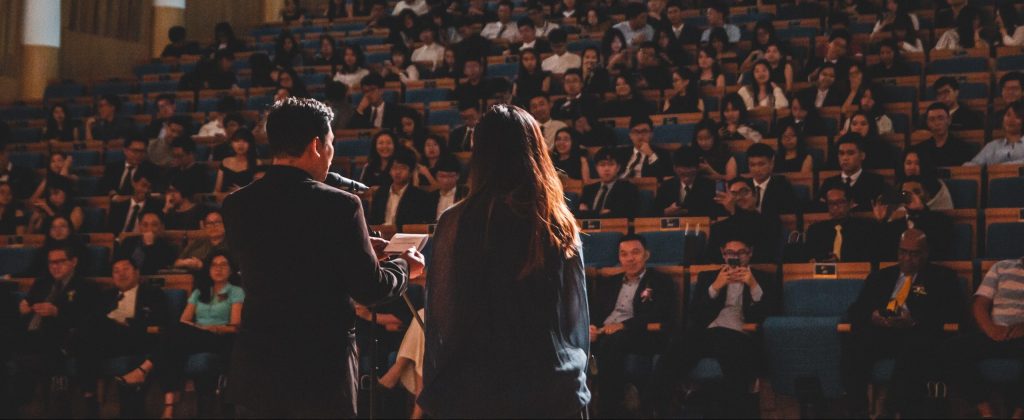It’s happened to all of us: speakers, presenters, workshop and meeting leaders. You have prepped like mad and given our all, but the audience does not seem engaged. They are quiet, distracted or they don’t ask any questions. You start to make assumptions. They find your training draining. They are bored. You try to exit the stage or conference room as gracefully as you can, wondering what went wrong.
Just when you think the torture has ended, someone from that reluctant audience comes up to you. They express the opposite of what you assumed. They are encouraging. They say, “Great work! Thanks for speaking to us.” You force a smile, confident they are just being kind, you exhale and say, “Ugh, that was not my best.”
And just like that, you have made a classic mistake in public speaking and negatively affected your audience’s experience. Rather than show your appreciation for them and their kind words, you make it about yourself, and undercut the presentation, and their graciousness.
Here are 3 ways you can handle those awkward moments, check your ego and honor the group’s experience.
-
- Don’t make assumptions.
 A quiet audience may be listening to every word. Someone on their phone might be taking notes or using a translation app. Every audience is different and comparing how they take your information is fruitless.
A quiet audience may be listening to every word. Someone on their phone might be taking notes or using a translation app. Every audience is different and comparing how they take your information is fruitless.
- Don’t make assumptions.
When judgmental thoughts creep in (i.e. “I’m boring.” “I’m not what they wanted.”), take a deep breath and place your focus and objective back where it needs to be: on the audience.
When an audience member tells you, “Great job!” Believe them. Thank them. It can be as simple as that. “I’m glad you enjoyed it.”

- Make it about them. At the Goodman Center, we teach in our Platinum Rules of Presenting, that a presentation is always about the audience. It’s not about you and what you want to tell them. It is about their journey from where they are when they enter the room to where you want them to be when you are finished speaking.
If someone approaches you after your presentation, you can ask them about their work. Ask them what they might take with them from the presentation. Ask them for stand-out moments from the conference or convening so far.
It can be hard to accept praise (especially when we assume it’s undeserved), but you can still connect with this person and maybe even learn a thing or two from them.

-
- Focus on gratitude. In this busy world, our attention and time is under never-ending demand. Yet, this audience chose to spend that time and attention with you. So, even if they didn’t give you a standing ovation, they have given you something very valuable: their time. So, say “Thank You.”
“Thank you for being here.” “Thanks so much for saying that.” “I am grateful to be part of this.” This honors their experience and keeps the focus and gratitude on them.
Taking care of your audience starts the moment you accept the charge of speaking, leading a meeting or presenting, and it isn’t over until you are back home, in your hotel room or off that Zoom. When you stay away from assumptions and focus on your audience’s experience, you’ll be a better speaker, leader, presenter, and chances are, you’ll feel better about yourself as well.
